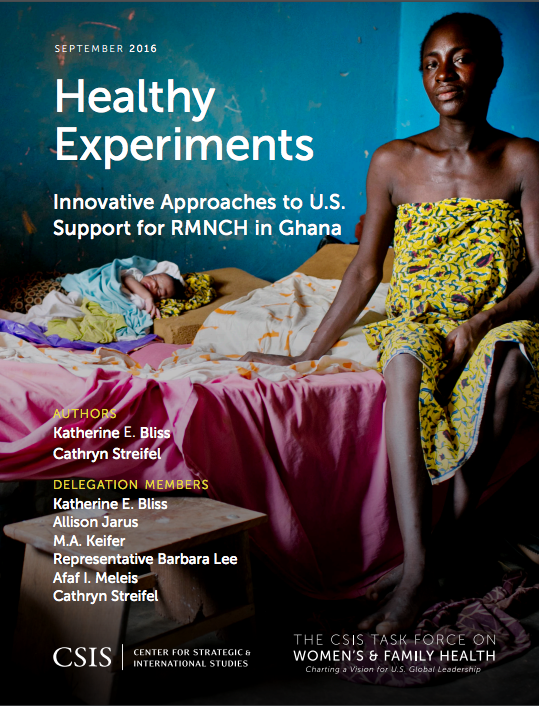Healthy Experiments
Innovative Approaches to U.S. Support for RMNCH in Ghana
In May 2016, a delegation from the CSIS Task Force on Women’s and Family Health traveled to Ghana to examine U.S.-Ghana bilateral cooperation on reproductive, maternal, neonatal, and child health (RMNCH) issues, as well as the way U.S. bilateral assistance on immunization programs complements support provided to Ghana by Gavi, the Vaccine Alliance.
Despite progress on RMNCH in recent years, Ghana still faces considerable challenges when it comes to protecting women’s and children’s health. Ghana has had enormous success in reducing child mortality because of its strong immunization program, but over the next five years it will need to assume full financing for those purchases.
And despite impressive national commitments, in the vast, impoverished Northern Region, where many communities are dispersed, reaching women and children with lifesaving services at the community level is often not a reality.
As the United States considers the future of its own health assistance, Ghana’s experience with the Gavi transition, the U.S.-Ghana experiment with government-to-government financing at the subnational level, and the U.S. emphasis on building capacity for maternal and child health through health systems strengthening will offer lessons for continued work in other contexts.
TO DOWNLOAD FULL REPORT, CLICK HERE.






